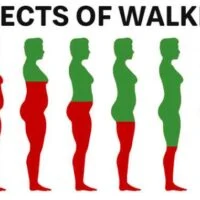Baking soda is a well-known natural cleanser that’s often used around the house, but have you heard of baking soda shampoo? This affordable, home-made concoction has become popular for those following the “no poo” movement–ditching commercial shampoos in favor of either natural alternatives or none at all. As with many health fads, it’s important to look at the science behind any anecdotal evidence. Is baking soda shampoo really a cure-all to speed up hair growth and cleanse the scalp? Let’s find out.

The Baking Soda Shampoo Trend
In an effort to avoid potentially harmful, harsh chemicals, many people are cutting out commercially made shampoo and conditioner products. In addition to a desire to simplify their hair care regimen, “no poo” adherents cite saving money and cutting down on their use of plastics as added benefits. Because of baking soda’s cleansing power, users of the self-made shampoo rave over squeaky clean hair, more volume, and a fresh scalp.
The general process of washing hair with baking soda is simple. Most recipes include mixing baking soda with water, massaging it into the scalp, and then rinsing with apple cider vinegar. Adding small amounts of natural oil (like coconut) after washing is also recommended for some hair types. (1)
The Effects Of pH Levels On The Hair
Although many baking shampoo users swear by the method, there’s no scientific evidence that it’s beneficial over traditional shampoo. In fact, science shows the opposite: baking soda is a powerful cleanser that can actually strip your hair. This has to do with pH levels of both your scalp and what you put on it.
Baking soda has a very high alkaline pH level of 9. The scalp’s pH, however, is 5.5. The hair shaft pH is 3.67. Because of these differences, cleansing with baking soda can actually increase the electrical charge on the surface of the hair–causing dreaded frizz. While this higher pH can remove build-up, increasing the pH of hair shafts also allow more water in. In doing so, keratin molecules are disturbed and the likelihood of breakage and weakness increases. (2)
In addition to getting rid of product buildup, baking soda’s high pH can also get rid of natural oils in your hair. Many recipes for baking soda shampoo suggest following with apple cider vinegar to “rebalance” the scalp and hair’s pH levels. The problem with this is that apple cider vinegar’s pH is fairly low, about 3.075. Since it’s lower than your actual scalp’s pH, there’s no guarantee it will restore balance. (1)
Can Baking Soda Help Hair Grow?
Another claim by baking soda shampoo lovers is that the method helps grow–and regrow–hair. The problem with this claim is that hair growth is primarily an internal process. Diet, protein intake, and vitamin levels are all key factors in hair health, all of which start inside the body. While scalp massage and essential oils can stimulate the hair follicles, there’s no evidence that baking soda will grow hair. (3)
In fact, baking soda can actually irritate the scalp and cause breakage that would limit growth. Because baking soda is made up of tiny salt crystals, the abrasive quality can damage strands. This shampoo method can actually stress your hair out more than help it. (4)
So if you’re really looking to decrease buildup on the scalp, hair care experts recommend clarifying shampoos formulated for the task. Many shampoos are now created without harsh ingredients and added natural oils and conditioners. This will ensure that you have a clean head of hair, avoid any potentially harmful synthetic ingredients, and don’t have to worry about irritating your scalp. If you do decide to try the baking soda shampoo trend, make sure to watch for signs of breakage and don’t overdo it. In this case, less is definitely more.



